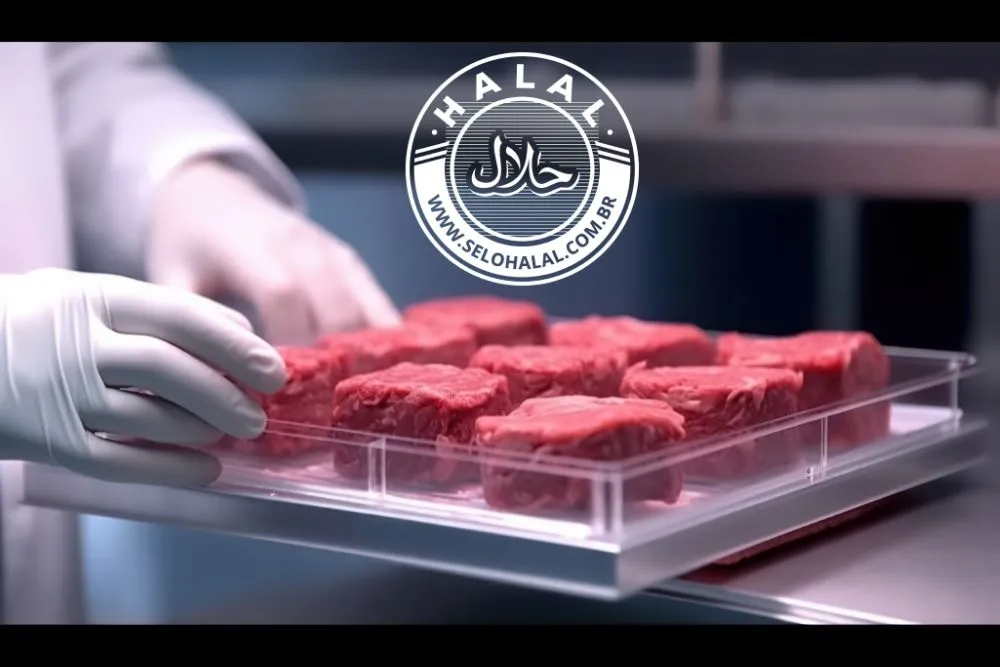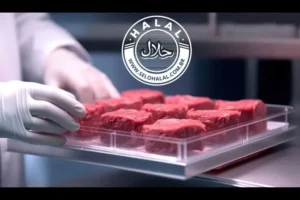Cultured meat is a food product obtained from animal cells grown in a laboratory, without the need to slaughter animals. This technology promises to be a sustainable and ethical alternative to conventional meat production, but it also raises questions about its religious and cultural acceptance. In this post, we will explore the scientific and Islamic perspectives regarding the halal status of cultured meat, drawing on the article “Halal status of cultured meat: Scientific and Islamic perspectives” published in the journal Trends in Food Science & Technology.
The criteria for halal Cultured Meat:
According to the authors, cultured meat can be considered halal if it meets four main criteria: (1) the source of the cells must be halal; (2) the culture medium used to nourish the cells must be halal; (3) the cultivation process must be free from cross-contamination with prohibited substances; and (4) the final product must be safe and beneficial for human consumption. These criteria are based on the Islamic principles of tayyib (pure), halal (permissible) and maslahah (benefit).
The source of the cells:
It is the most important factor in determining the halal status of cultured meat, as it defines the identity of the product. The cells must be obtained from animals that are permitted for consumption by Muslims, such as cattle, sheep, goats, poultry and fish. Furthermore, the cells must be extracted from live or slaughtered animals in accordance with Islamic rules, which involve pronouncing the name of God, incising the jugular vein and draining the blood. Cells from dead, injured or sick animals are not halal.
The culture medium:
It is the liquid that provides nutrients, hormones and growth factors for cells to multiply and differentiate into muscle tissue. The culture medium must be free from any substance prohibited by Islam, such as blood, alcohol, pork or carnivorous products. Furthermore, the culture medium must be changed regularly to avoid the accumulation of metabolic waste that can harm the quality and safety of the cultured meat.
The cultivation process:
It is the set of techniques and equipment used to create ideal conditions for the development of cells in meat. The cultivation process must avoid any cross-contamination with pathogens or haram substances that could compromise the halal status of the cultured meat. For example, bioreactors used to grow cells must be sterilized and isolated from other sources of contamination. Furthermore, the cultivation process must follow good manufacturing practices and ensure traceability and transparency of the origin and composition of the cultured meat.
The final product
It is cultured meat that can be consumed by humans. The final product must be safe and beneficial to human health, without causing harm or illness. The safety and quality of cultured meat must be assessed through rigorous scientific testing and regulated by the competent authorities. Furthermore, the final product must have sensory characteristics similar to conventional meat, such as flavor, texture, color and aroma.
Conclusion:
Cultured meat can be considered halal if it meets the four criteria mentioned above, which reflect Islamic values of purity, permission and benefit. However, acceptance of cultured meat by Muslim consumers also depends on social, cultural and psychological factors such as trust, familiarity, education and communication. Therefore, an open and inclusive dialogue between scientists, religious leaders, regulators and consumers is needed to promote understanding and acceptance of cultured meat as a halal food option.









